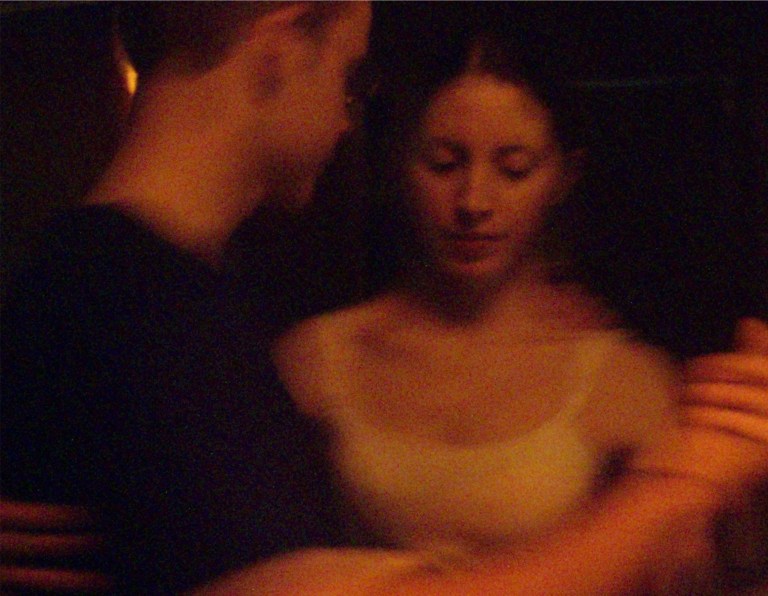Need Help?
Depression & Anxiety
Transforming Grief & Loss
Support for Gifted Individuals
Emotion Focused Therapy

REGISTERED PSYCHOTHERAPIST
Along the way, I trained in experiential psychotherapy at the Gestalt Institute of Toronto & earned a master’s degree in Adult Education from the University of Toronto (OISE). I am a Psychotherapist registered with the College of Registered Psychotherapists of Ontario (CRPO) and trained with Sue Johnson, originator of Emotion-Focused Therapy for Couples. My most important insights come from the practice of Yoga, T’ai Chi, Meditation, Intuitive Reading and other mind/body/spirit approaches. I bring these insights, along with techniques like Internal Family Systems (IFS), Dream Analysis and guided self-reflection to help you connect to your true Self—the transformative core at the centre of our being, which fosters a more authentic and fulfilling life.
My Therapy Services
- Overcoming Grief
- Depression & Anxiety
- Sexual Orientation
- Gifted Individuals
- Relationship & Marital
- Surviving Trauma


Depression & Anxiety

Sexual Orientation

Gifted Individuals

Relationship & Marital

Surviving Trauma
How Does It Work?

Schedule Your Free 30 Minute Consultation
On average, a session lasts a full sixty minutes. During our first session I will outline my process and explain any of the legal and administrative things you need to know so you can give your informed consent.. Once you have given your consent, we will begin the assessment process. I will ask why you are here and what you want to accomplish. I will ask you questions about your present situation at home, at work and in your relationships--as well as asking about your family history. Out of this, we will develop a set of goals and an action plan for you, and identify tangible indicators which will tell us when your goals have been achieved.
Regular Meetings
After that, we will meet on a regular basis, usually once a week or every other week. The length of therapy varies with each individual, according to the complexity of the issues brought to the process. In general, I tell people that they will know when they can cut back or quit, since they will be feeling better and the issues which brought them to coaching will be, if not resolved, then much more manageable.

Frequently Asked Questions
If you have any questions, just give me a call, or send me an email and I will get back to you as soon as possible.
-
What type of therapy is offered?
I am trained in a variety of Humanist approaches, including Gestalt, Process Experiential, Rogerian, Focusing, Emotion-focused (EFT) and Internal Family Systems (IFS). All of these approaches are based on the principle that human beings have a natural tendency towards health and healing. Our role as therapists is to help unlock this process. Where the medical model focuses on disease and dysfunction, Humanist approaches focus on growth and transformation, helping folks tap into their natural tendency toward wholeness and psychological integration. Being an artist myself, I also use creative techniques borrowed from Art Therapy and Gestalt Dream Analysis, which tap into our deep connection to the universal Self—the source of healing and insight -
How long does therapy take?
Every person is unique, and the length of therapy depends upon the issues you bring to the process. Issues that involve a singular goal will probably only require a few sessions. However, if you have come from a situation involving a troubled past, and have multiple issues and goals, it will of course take longer to help you identify and overcome your barriers. Whatever your particular situation, you are the one in charge of the process. You can decide how often and how long you want to attend. In my experience, it is usually obvious when you are done, as you have addressed the goals that brought you to therapy, and your work, life and personal relationships are much improved. Most importantly, you will have new tools, skills and perspectives to help you continue to grow and maintain a more authentic and satisfying life. -
What is personal growth work?
Some people come to therapy because they want to enhance personal growth and heighten access to the true “Self”—the wise core of our being. When we access the authentic Self, ordinary, everyday experience is transformed into deep insight and enhanced personal growth. Psychotherapy not only provides a safe place to navigate the everyday challenges of life, but it is also a place where we can examine our core belief systems, challenge what is no longer useful to us and foster healthier perspectives in our lives and relationships. Personal growth work can be as often as the individual wishes and can continue as long as you find it useful. -
How Psychotherapy can help us get unstuck
Often times the things that impede our progress in the present are rooted in experiences from our past. For this reason, the process of getting unstuck begins with a thorough assessment of your unique history, in order to identify unhealthy perspectives that have resulted in habits that hold you back today. For example, you might continually find yourself in unhealthy relationships, but no matter how hard you try, you cannot seem to change this. Together, you and I will look at the thoughts, feelings and behaviour that underlie the decisions you make around relationships. Using Internal Family Systems and other transformative techniques, we will trace these back to unprocessed incidents from your past that inform your present attitudes and behaviour. The very process of bringing awareness to our past experience changes our relationship to it, enabling us to have more insight and control over how we choose to act in our present life.
Latest Articles

- byCarolyn Dallman Downes
- On 12 11, 2017
Transformative Tango at the OACCPP Conference 2017

- byCarolyn Dallman Downes
- On 08 06, 2017
